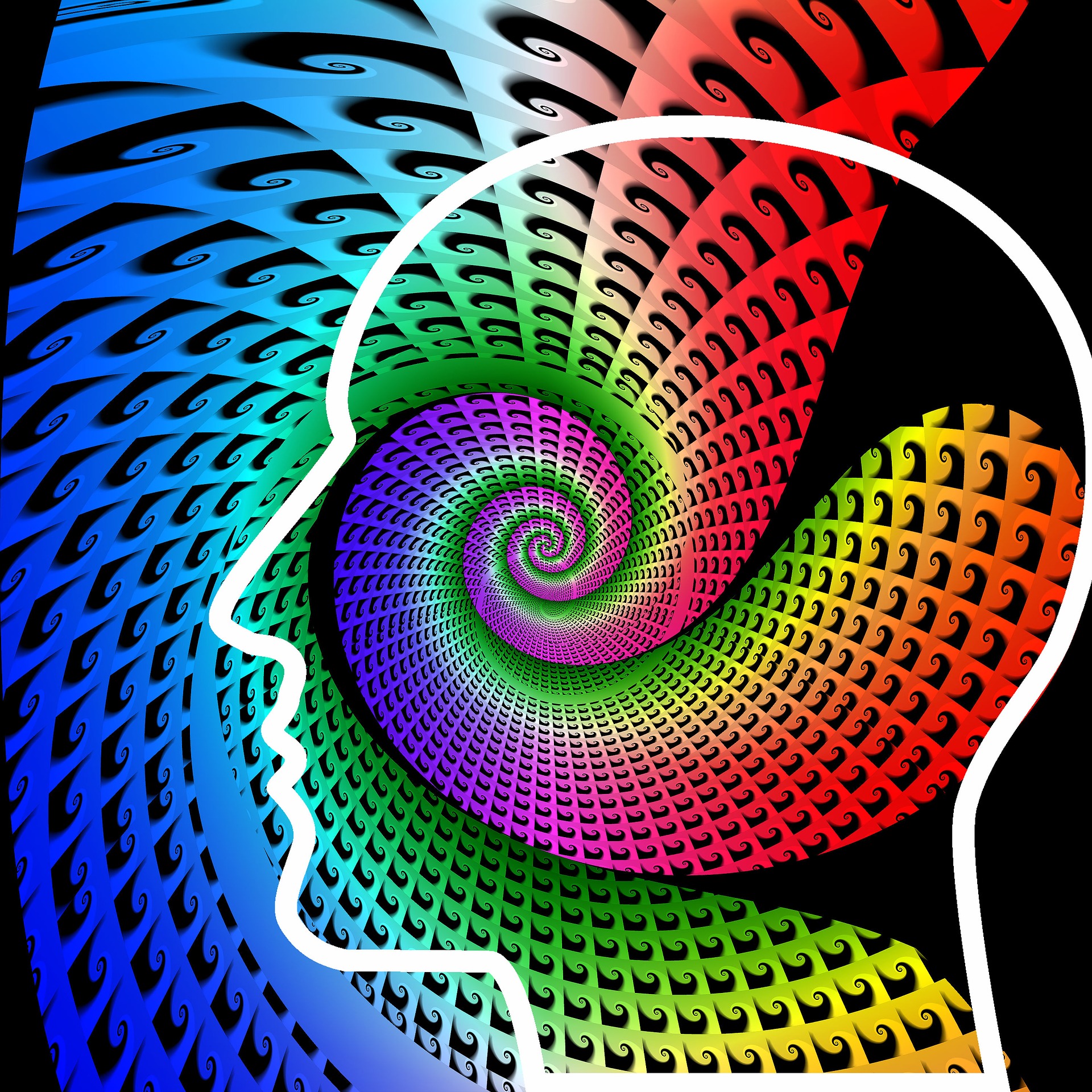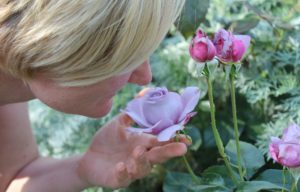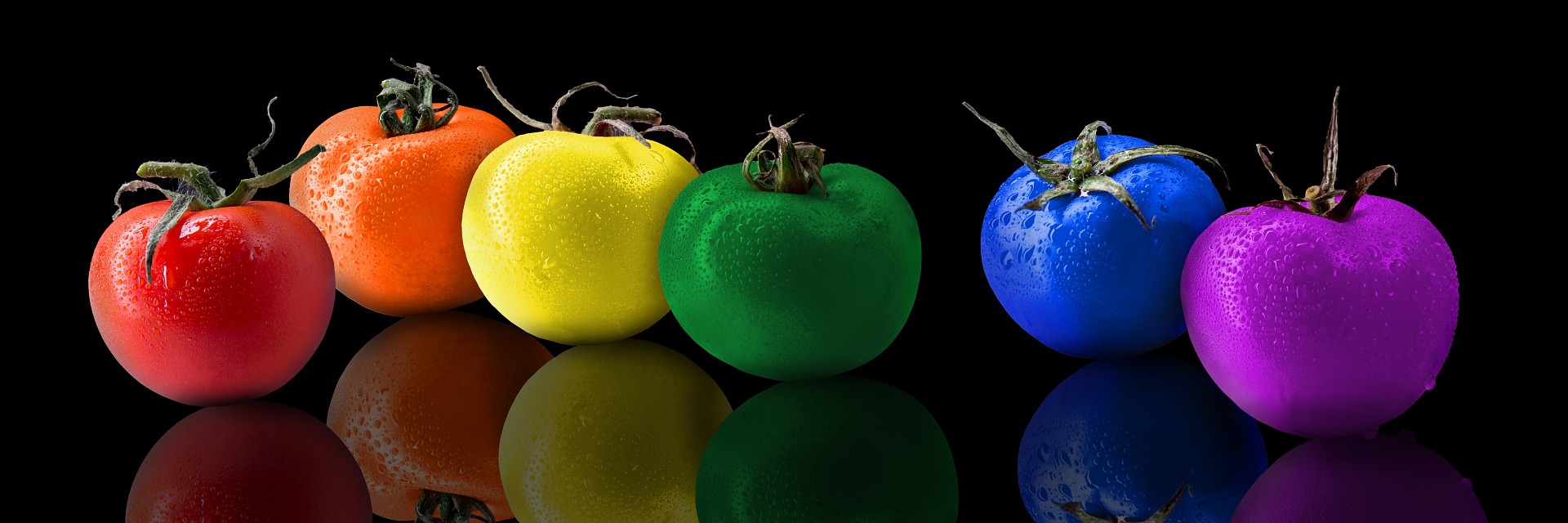Think about how much our senses add to our lives; our senses provide us with glorious everyday gifts so learning how to refine your senses will help open up a number of things in our life and add to our happiness and well-being. However, like many gifts we humans have been given, we take our senses for granted and forget to use them to our advantage.

Photo credit: bykst/pixabay
Imagine, for instance, that you are sitting or lying down on a soft blanket in your favorite field or beach. Notice how soft the blanket is. Notice the aromas in the air, or how soft the breeze feels against your skin. Open your eyes and look up at the sky. Notice the blueness of the sky or the formations of the clouds.
Now take your thoughts away from this imagery and notice how your body is feeling right now. Mostly likely, as you read the words, your brain was invoking your sensory neurons to enable you to re-experience feelings, tastes, sights or sounds. In turn, your body most likely relaxed a bit, as did your mind.
Indeed, the act of being mindful, of being aware and present in the present moment, observing, using all your senses, is a meditation practice known as mindfulness meditation, known to help calm the body and mind, reduce stress response reactivity and help one access higher brain centers.
Learning from Leonardo da Vinci
The problem for most people is that they are too busy, too stressed and too unaware to pay attention to their senses or to the present moment, thus leaving their mind dull and their body stressed.
Leonardo da Vinci had the same observation of the people in his time. He said that the average person,
“looks without seeing, listens without hearing, touches without feeling, eats without tasting, moves without physical awareness, inhales without awareness of odor or fragrance, and talks without thinking.”
Seen as the ministries of the soul, the senses, to Leonardo, were the source of his greatest work. With his acute vision, for instance, he recorded aspects of the flights of birds by observing them, something that was ultimately validated by the invention of modern photography. With his childlike sense of curiosity and desire to experience life fully, he used his five senses t to truly embrace la dolce vita, or the joy of life.
Learn From the Innocent
Children, they are constantly wanting to taste, touch, smell, feel or experience. Indeed, we were born to feel, to sense. But most of us are so busy doing that we don’t take the time to be. We are human beings after all, not human doings.
And in our doings and fixations and getting things done or not making mistakes, we have stopped fully experiencing and engaging our senses in life, relying more on our thoughts and fears instead, which in turn, drives our stress response and subsequently drives away our innate desire to experience the beauty of contrasting sensations or sights.

Photo credit: MarianF/pixabay
As Michael Gelb says in his book, How to Think Like Leonardo da Vinci, we can tap into our creative genius like Leonardo through “the continual refinement of the senses, especially sight, as the means to clarify experience.”
In other words, we can relearn to experience our lives, to be perpetually surprised, by actively engaging and awakening our five senses: sight, sound, touch, taste and smell.
Here are some questions to contemplate to assess how good you are at engaging your senses as a means to enliven your experiences:
- Do you remember the color of your best friend’s eyes?
- Do you notice when the light changes subtly in the sky or in a room?
- Are you sensitive to sounds, noise or aware when something is off key?
- Better yet, are you aware of silence or the space of feel in between sounds?
- Can your sense of smell distinguish between different foods or between something of quality versus not?
- Can you taste the difference in different wines or seasonings of the same dish?

Photo credit: Foto-Os
These are just a few of the questions that might stimulate you to start paying attention to your senses (and there are plenty more in Michael’s book for you to use to assess your Sensazione). But better yet, you can start to heighten your powers of Sensazione right now!
Heighten Your Senses
Let’s get your sensazione activated.
Power Breaths:
Clear your mind of thoughts (especially negative ones) and relax your body:
- Breathe in and count 1-2-3.
- Breathe out and count 1-2-3-4-5.
- As you breathe out, allow all thoughts and tension to be released (you can imagine they are flowing out into the wind, down a river or into the earth).
- As you breathe, breathe in peace.
- Breathe in and out for 10 cycles.
Useful Pointers:
- Practice mindfulness in Nature: The Japanese have discovered that engaging in Shinrin-Yoku or forest bathing, involving walking through a forest while emerging your senses to take in the sights, smells, sounds, tastes or textile experience of nature is good for your health. A form of mindfulness meditation practice, it involves being in a moment-by-moment awareness of your thoughts, sensations, and feelings, as well as of the surrounding environment. You can focus on one sensation like what a flower might smell like or feel like or evoke all your senses.
- Listen to Music: Listen to your favorite concerto, opera, hip-hop or rock tune. As you do, start to draw using crayons, markers or paint (even finger paint!). Perhaps you can listen to one form of music and compare it to another. See what kind of masterpiece you can create!
- Practice Silence: Find a quiet place to sit comfortably. You may close your eyes or gaze softly at your hands on your lap or at a point of distance, perhaps 20 feet away. Listen to the silence. Listen to the silence in between sounds. Perhaps you notice cars moving outside. Listen to the silence in between.
- Eat with your Eyes Closed: Use your sense of smell and taste to compare. You may compare two different wines or two type of chicken dishes made with slightly different spices. Take time to appreciate the aromas and the varying tastes that hit your palate. Notice if the tastes seem to have a connection with the smells. When you are done, open your eyes and look at what you created in your minds eye and if or how it matches up.
- Visualize: You can choose to visualize being in your favorite place in nature or mastering a particular movement. Not only will your brain neurons be awakened as if you are actually doing these activities, but you may find that your ability to actually do these activities improves.
- Merge your Senses by Practicing Synesthesia: Think about a problem that you might be having in your work or personal life. Give it a color, shape or texture and imagine what it smells like or what taste it might have. Draw it out. You can also do the same exercise by asking yourself what your office life would be like would it be an opera or a painting or what your lunch would be if it was a song.
Dr. Eva Selhub is an internationally recognized resiliency expert, physician, author, speaker, scientist and consultant. Dr. Eva engages her clients and her audiences with her powerful energy, words of wisdom and scientific knowledge to activate the five pillars of resilience–physical, mental, spiritual, relationship and team– to achieve optimal resilience, success, health and happiness. Board Certified in Internal Medicine, Dr. Eva served as an Instructor of Medicine at Harvard Medical School and as a Clinical Associate of the world renowned Benson Henry Institute for Mind-Body Medicine at the Massachusetts General Hospital for nearly 20 years. She is the author of The Love Response and the co-author of Your Brain on Nature, and her latest book Blow up or Bliss Out will release in 2018. Dr. Eva has been included in national media such as The New York Times, USA Today, Self, Shape, Fitness, Health, The Dr. Oz show and more. In addition to We Blog the World, she also writes for Huffington Post, MindBodyGreen, Steven Aitchison, Success Stories, Rebelle Society, Good Men Project and Human Spaces.








